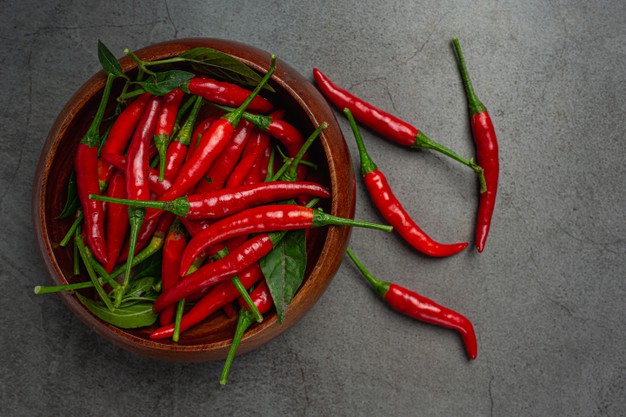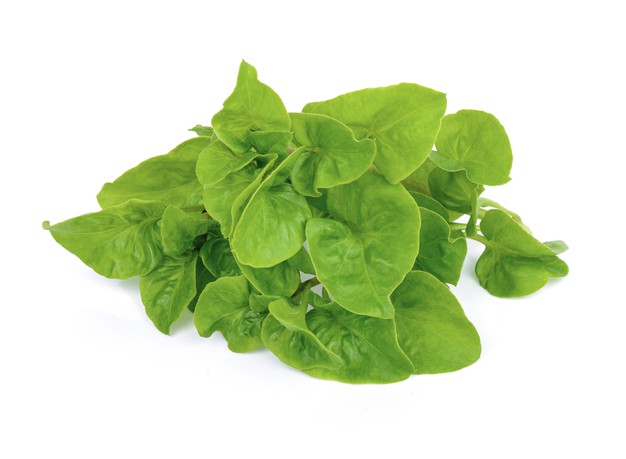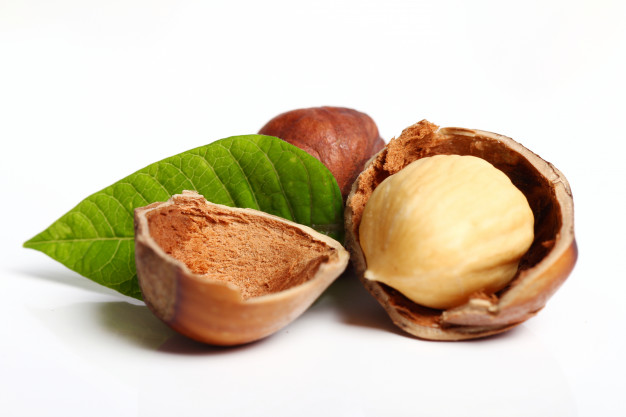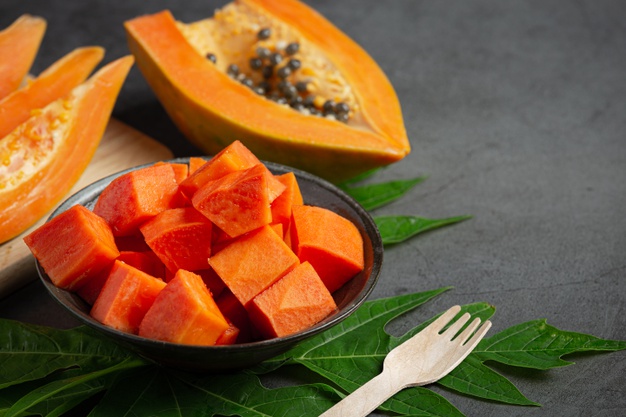Cayenne pepper is a very popular spice belongs to Nightshade family. It is closely related to bell pepper and jalapeño. It has been traditionally used for various medicinal and culinary purposes.
Nutritional profile
- It contains desirable amount of carbohydrates and fibres
- It contains various important amino acids as well
- It also contains fat, saturated and unsaturated fats both but does not contain cholesterol
- It is packed with several vitamins such as Vitamin A, vitamin C, Vitamin E, Vitamin K, Vitamin B1, B2, B3, B6, B9 and choline
- It also contains numerous important trace elements like sodium, potassium, calcium, phosphorus, iron, zinc, selenium, copper, magnesium and manganese
- It contains a number of phytonutrients too
- The most important biological active component present in cayenne pepper is capsaicin that exerts various nutraceutical activities
Biological property
Antioxidant activity
- Cayenne pepper contains numerous imperative substances like Vitamin A, Vitamin C, Vitamin E, choline, beta carotene, cryptoxanthin, zeaxanthin and lutein, which are accountable for exerting antioxidant activity
- In one word it is just filled up with antioxidants and its consumption is extremely beneficial for removing free radicals from body
- It also helps to protect the body from the detrimental effects of reactive oxygen species and lipid peroxidation


Anti-inflammatory activity
- Cayenne pepper has been traditionally used as an imperative pain reliever because of its capsaicin component
- It has strong anti-inflammatory activity, which is responsible for decreasing inflammation and pain
- It also helps to prevent joint swelling
- It has seen that capsaicin plays significant role in decreasing the concentration of substance P, which is a neuropeptide synthesized by the body that goes to brain to signal pain. As capsaicin reduces the amount of substance P hence pain signal can no longer reach the brain as a result the feeling of pain is decreased
- It is very effective for decreasing muscle pain, back pain and pain after surgery
Antimicrobial activity
- It helps to inhibit the growth and replication of microbes within host
- It is very effective against bacteria and fungus
Anti-carcinogenic activity
- Its consumption is linked with decreasing the prevalence of carcinoma and all the credit goes to its capsaicin component
- Capsaicin plays vital role in promoting apoptosis, which ultimately helps to suppress the growth of cancerous cells in body
- It also prevents metastasis that decreases the severity of cancer
- It helps to prevent tumor cell growth as well
- It has seen that its consumption is awfully helpful for decreasing the prevalence of prostate, breast, lung, skin, pancreas and colon cancer

Health benefits
Role on immunity
- Antioxidant activity of cayenne pepper is responsible for strengthening one’s immune system
- It helps to enhance the activity of immune cells and also enhances body’s resistance power, which significantly decreases the risk of becoming ill
Role on digestive health
- It plays vital role in protecting the digestive tract from injuries as it is directly linked with boosting the stomach defense against infections
- It is also associated with stimulating the secretion of digestive enzymes hence helps in digestion as well
Role on detoxification
- Cayenne pepper has been traditionally used as an important detox substance
- It is closely related with revving up the circulation, which helps to clear toxins from body
- Consumption of cayenne pepper along with lemon significantly boosts up the detoxification process
Role on metabolism
- Capsaicin present in cayenne pepper shows potent metabolism boosting property
- It is associated with increasing the heat production of the body that ultimately makes the body able to burn more calories hence increases metabolism

Role on skin
- Micronutrients present in cayenne pepper play significant role in improving skin health
- Antioxidants present in cayenne pepper significantly decrease the prevalence of skin disorders as they help in protecting the skin from oxidative damages and also delay the ageing process
- It is very effective for treating psoriasis as its capsaicin component is responsible for decreasing the itching as well as red patches on skin and significantly improves skin appearance
- It also helps to prevent acne induced discoloration of skin
Role on hair
- It contains numerous imperative micronutrients that help to promote hair growth as well
- Preparing a paste with cayenne pepper, honey, olive oil and egg and its application to scalp for at least 30 minutes followed by washing significantly improves hair strength. It also enhances hair volume and shine
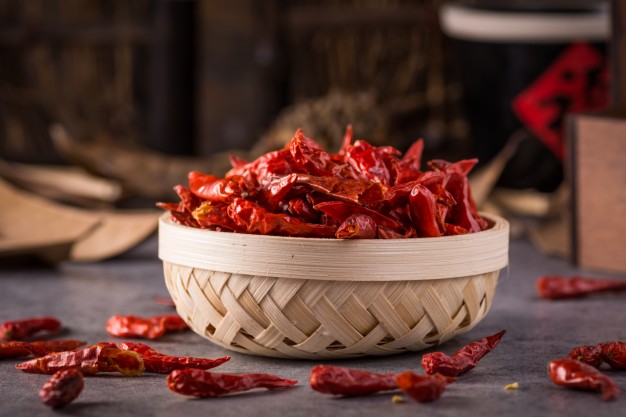
Disease preventive role
Hypertension
- Hypertension or elevated blood pressure is considered as one of the leading cause of developing severe health complications like cardiac disorders, renal disorders, strokes, vision problems etc.
- Proper consumption of diet helps to protect the body from hypertensive crisis and it has seen that inclusion of cayenne pepper in diet significantly decreases hypertension as it helps to relax blood vessels

Obesity
- It acts as an effective therapeutic substance for preventing obesity
- It has strong thermogenic effects, which is closely related with enhancing calorie burning hence promotes weight reduction
- It is also associated with preventing appetite that also hinders over consumption and facilitates weight reduction
Cardiovascular disease
- It contains various nutrients that promotes cardiac health and functionality
- It helps to prevent the hardening of blood vessels by inhibiting fat deposition hence plays significant role in improving the health of blood vessels, which provide a positive impact on cardiac health
- It is also related with preventing the formation of blood clots thus decreases the prevalence of heart attacks
- It also plays imperative role in preventing arrhythmia (disease related with irregular heart beat)
Congestion
- It can be used as an effective remedy for preventing congestion
- Capsaicin component of cayenne pepper helps to thin mucous thus offering quick relief from nasal congestion or stuffy nose or postnasal drip or sneezing by improving air circulation
- It is associated with clearing congestion caused by bronchitis as well
- It is also incredibly helpful for treating sore throat, sinus infection, laryngitis, cold and flu
Toothache

- It has been traditionally used as an imperative remedial action for toothache
- Cayenne pepper significantly reduces irritation as it acts as counter irritant thus reduces the deeper tooth pain
- It is also associated with increasing local blood flow that also helps in relieving toothache
Culinary uses
Fresh whole cayenne pepper and ground cayenne pepper are used in various ways like-
- It can be added to soup or stews
- Ground cayenne pepper can also be sprinkled on scrambled egg or egg salad or boiled egg or quiches before consumption
- It can be mixed into hummus as well
- It can also be stirred in homemade lemonade
- It can be added to hot chocolate
- It can be used to prepare curries
- It can also used to spice up marinades
- It can be added to sautéed vegetables too
- It can be consumed with salad as well
General consideration of using cayenne pepper
- It is better to purchase fresh cayenne pepper, which looks fresh, firm and shiny
- It should be stored properly as it can absorb moisture and spoils rapidly thus it is better to keep cayenne pepper in paper bag or wrapping it with paper towel and should be kept in refrigerator

Risk factors
Too much consumption of cayenne pepper may develop gastrointestinal irritation and may also develop allergic reactions thus it is better to consume it in moderation.

Source:
Alliance, M.B.H., The Uses and Benefits of Cayenne Pepper.
Altınterim, B., 2013. Cayenne, Capsaicin and Substance-P. Research & Reviews: Journal of Herbal Science STM Journals.
Cosico, A., Saldana, J. and Lopez, Y., 2019. Relative Anti-Inflammatory Properties of Cayenne Pepper.
Otunola, G.A. and Afolayan, A.J., 2013. Evaluation of the polyphenolic contents and antioxidant properties of aqueous extracts of garlic, ginger, cayenne pepper and their mixture. Journal of Applied Botany and Food Quality, 86(1).
Reacher, J., Cayenne Pepper Benefits for Prostate Cancer Patients.
